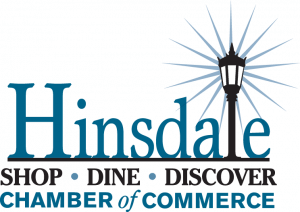How Small Business Owners Can Create a Recession-Ready Future
Economic slowdowns don’t knock—they barge in. When that happens, small businesses are often hit first and hardest. Yet, not all downturns end in disaster. Resilient businesses find ways to bend without breaking, often emerging leaner, smarter, and better prepared for whatever comes next. There’s no bulletproof vest against recession, but there are clear, actionable strategies that reduce risk and increase stability—especially for those paying close attention now, before the storm hits.
Know What Bleeds When You Cut
Understanding which parts of the business can survive on less is a huge advantage. That doesn’t mean gutting staff or freezing all spending at the first sign of trouble. It means identifying which expenses are non-negotiable and which are nice-to-have. Businesses that regularly audit their operations—monthly or quarterly—can pinpoint where cash is quietly slipping out and build a clear roadmap for cutting costs with intention instead of panic.
Widen Revenue Streams Without Losing Focus
When the economy shifts, so do customer habits. Relying on a single product, client, or vertical is a gamble during uncertain times. Diversifying doesn’t require a dramatic reinvention; often it means looking for services or add-ons that sit adjacent to the current offering. The key is alignment—extending offerings that feel like a natural next step for customers who already trust the brand. It’s not about chasing every trend, but rather reinforcing the core business with complementary income sources.
Order Over Chaos Builds Trust
A well-run business knows where every number lives and how to retrieve it when needed. Financial institutions and aid programs move faster when paperwork is clean, current, and clearly filed, so organizing documents isn’t just tidy—it’s tactical. Saving records as PDFs helps preserve formatting, reduces compatibility issues, and makes your files feel more professional to outside reviewers. If you’re working with Word files, there are plenty of free methods to convert Word to PDF that streamline the process in seconds.
Stay Visible, Even When Competitors Vanish
One of the most common reactions to a slowdown is slashing marketing budgets. It’s also one of the riskiest. Customers don’t stop buying during recessions—they become more selective. Maintaining visibility in smart, targeted ways can be a lifeline. Leaning into owned channels like email newsletters, content updates, or local partnerships often costs less than traditional advertising but keeps the brand top of mind when wallets tighten.
Fortify Relationships, Don’t Just Collect Leads
Transactions keep businesses alive, but relationships help them endure. During recessions, loyalty becomes more valuable than volume. Business owners who treat clients and customers like long-term partners rather than short-term wins often see the dividends when the economy rebounds. This means staying in touch, following up even when there’s no immediate sale, and investing time in solving real problems instead of pushing a product.
Cash Flow Isn’t Just King—It’s Oxygen
Healthy cash flow is what allows a business to stay calm under pressure. Rather than waiting for collections to become a crisis, business owners can shore up their processes now: clear payment terms, early pay incentives, and tighter invoicing cycles all create a more predictable rhythm. When possible, building a cash buffer—even a modest one—buys crucial time during downturns and allows for more strategic decisions when competitors are scrambling.
Don’t Be the Last to Adapt
Change is the hardest pill to swallow when things have been working fine. But adaptability, not sheer endurance, is what separates businesses that last from those that don’t. The smartest owners listen closely—to their teams, their customers, and the market. They're not afraid to test a new delivery method, experiment with pricing, or shift messaging based on the moment. Stubbornness in business can feel like conviction, but during a recession, it can also be fatal.
Lean on Community, Not Just Capital
The myth of the lone business hero is deeply flawed, especially in downturns. Support systems—both formal and informal—become a source of stability when the numbers get wobbly. This might mean tapping into local business associations, collaborating with complementary businesses on shared promotions, or joining peer networks to swap ideas and advice. Community doesn’t replace good strategy, but it often reveals opportunities that spreadsheets miss.
Surviving a recession isn’t about having all the answers. It’s about asking better questions, earlier. Which part of the business can flex? What relationships need more attention? Where is the waste hiding? Owners who treat recessions as a challenge to be met—rather than a threat to be feared—are often the ones left standing stronger at the other end. While no plan guarantees survival, doing nothing all but ensures vulnerability. Preparedness doesn’t eliminate risk, but it does shift the odds. And in uncertain times, that shift makes all the difference.
Discover the vibrant business community of Hinsdale by joining the Hinsdale Chamber of Commerce and unlock unparalleled networking and growth opportunities today!

